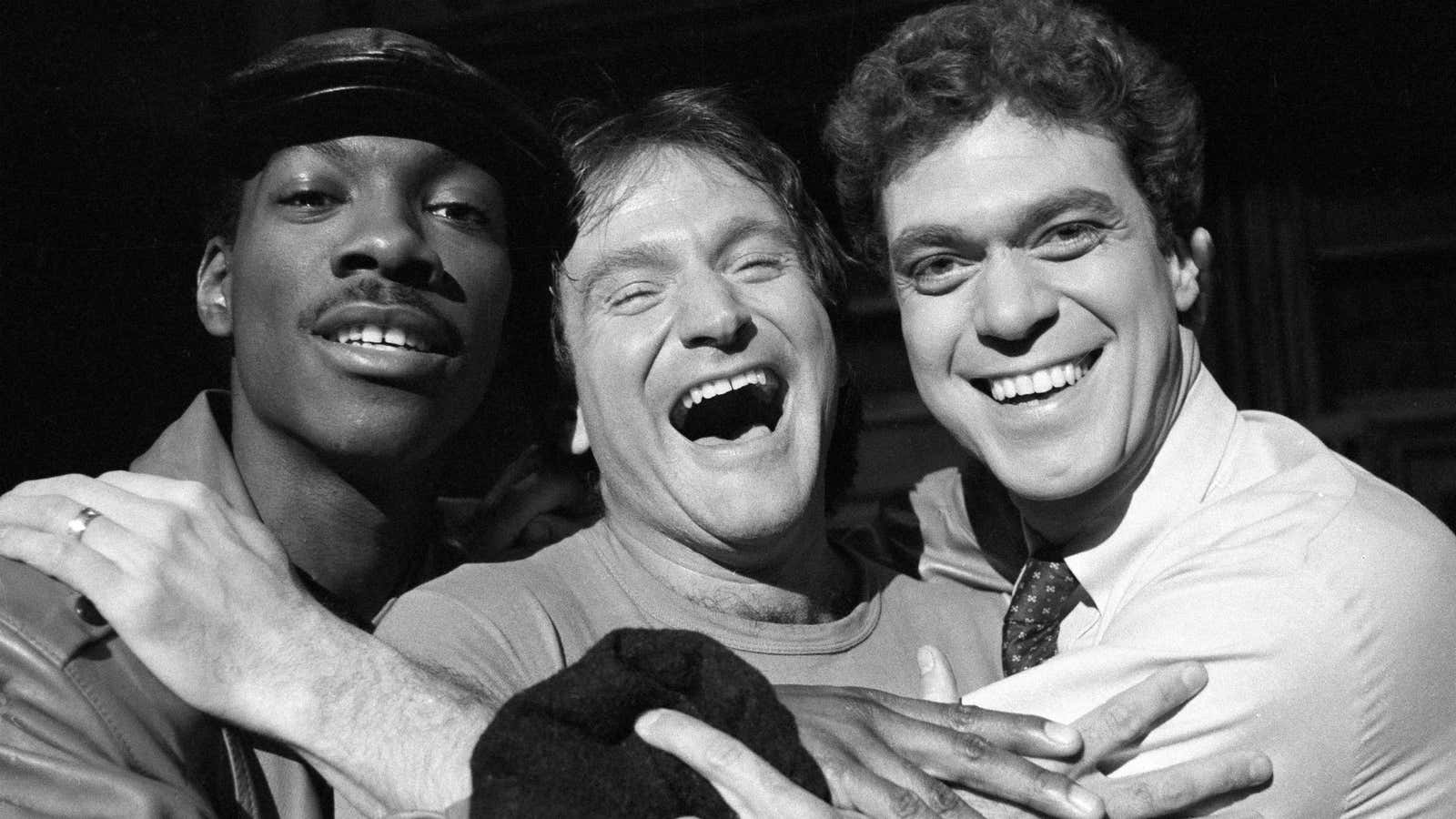Like the rest of the world, I was absolutely stunned when I heard the news that Robin Williams had passed away.
But I was not surprised. That is because as a comedian myself, I have seen firsthand the seamy underbelly of the comedy business. Steve Martin is right: ”Comedy is not pretty.”
It takes a certain type of person to want to get on stage or on camera and be the center of attention. I have met many entertainers, from the obscure to the known to the world famous. I believe that the desire to get on stage and be worshiped by a crowd comes from an unhealthful place. Perhaps they came from a broken home. Or were brutally bullied while in school. Take the example of Terrell Owens, the Super Bowl-winning wide receiver. Like myself, he was frightfully skinny in school and was bullied mercilessly, both physically and mentally. In high school, Robin Williams was voted least likely to succeed. There’s a connection: the rejection faced in one’s early years fuels this desire to be worshiped by millions. It can be certainly pleasing to the ego to travel the world, be famous and make a ton of money, all the while doing what one loves.
And so, comedy is a highly dysfunctional and sordid business, full of bitter, jaded, jealous, backbiting, vainglorious narcissists with all kinds of chemical and emotional dependencies. The average comedy club goer or viewer of comedy channels has absolutely no idea how insanely competitive and high-pressure the comedy business is. And there are thousands upon thousands of comedians vying for a tiny number of performance opportunities in comedy clubs. Even comedians who have been on the Late Show with David Letterman or The Tonight Show multiple times have difficulty earning a living wage.
The general public has no clue that even these accomplished comedians earn $25 to perform in clubs in New York City on weekdays and $75 on weekends, and even less in Los Angeles. About 10 years ago, comedians in New York threatened to strike, because wages hadn’t increased in 25 years. Of course, if a comedian meets with success such as a television role or a YouTube video which goes viral, he or she can command $20,000 for a weekend of performances at a comedy club. (Disclosure here on how I make ends meet: Despite having had no major television appearances and despite not being well known, I have discovered a niche doing clean comedy—I don’t curse—for corporations and private functions, which earns me up to $20,000 for an hour’s work.)
The picture behind the scenes is not a pretty one. There is rampant alcoholism and drunk driving, there is abuse of both illegal and prescription drugs, and there is sexual harassment of female comedians that would never be tolerated in an office environment. As a comedian climbs the ladder, he or she has to travel more and more, which leads to long, lonely hours on the road and unhealthful eating habits. Also, there’s the constant rejection that an entertainer has to face, from clubs, managers, agents, the industry and sometimes even the crowds. It’s not uncommon for a comedian or aspiring actor to go to hundreds of auditions for movies, television or commercials and not land a single role. If comedy attracts a dysfunctional personality type to begin with, couple that with the drugs, alcohol, travel, odd hours and other pressures, and the result is a powder keg just waiting to explode.
As a professional comedian, I’ve been very fortunate to perform in 22 countries on six continents. However, no matter where I’ve performed, Australia, Trinidad, England, South Africa, the Netherlands or even Dubai or Singapore, I have seen comedians getting drunk, stoned, high or even shooting up before and after shows. I’ve never had the desire to do any of this in my life, which puts me in an extremely, extremely tiny minority in the comedy business. Quite often, the gatekeepers of comedy such as club bookers are failed comedians themselves. They suffer from the same problems as comedians, but they don’t have the benefits that come from being on stage.
One wouldn’t immediately think of comedy as a dangerous profession, but the deaths continue to mount. Deaths from alcohol poisoning, from drug overdoses, from auto accidents, not to mention lives cut short by years of late nights and self abuse. Mitch Hedberg, Greg Giraldo, Patrice O’Neal, Mike DiStefano…these are some of the more well-known comedians who have passed away in recent years. However, these were not household names. It is truly unfortunate that it took the death of Robin Williams to call attention to what’s going on in the comedy industry.
This time, we must pay attention.
The comedy industry should seize this opportunity to fix this untenable situation. Just as sports leagues have done, we must curb the self-abuse among comedians. The clubs should periodically drug test comedians, with the threat of being banned from performing if they test positive for hard drugs. Agents and managers should also do the same, making it clear that comedian has to be free of drug and alcohol abuse before they will be signed. Television networks and the industry should build in clauses that nullify contracts in the event of excessive self-abuse. And above all else, the TV networks and movie studios that are profiting and making millions off the backs of comedians should contribute toward addiction treatment and prevention programs. Hopefully, these steps will save the lives of many comedians.
As the French writer Suzanne Necker once said: “Fortune does not change men, it unmasks them.”
